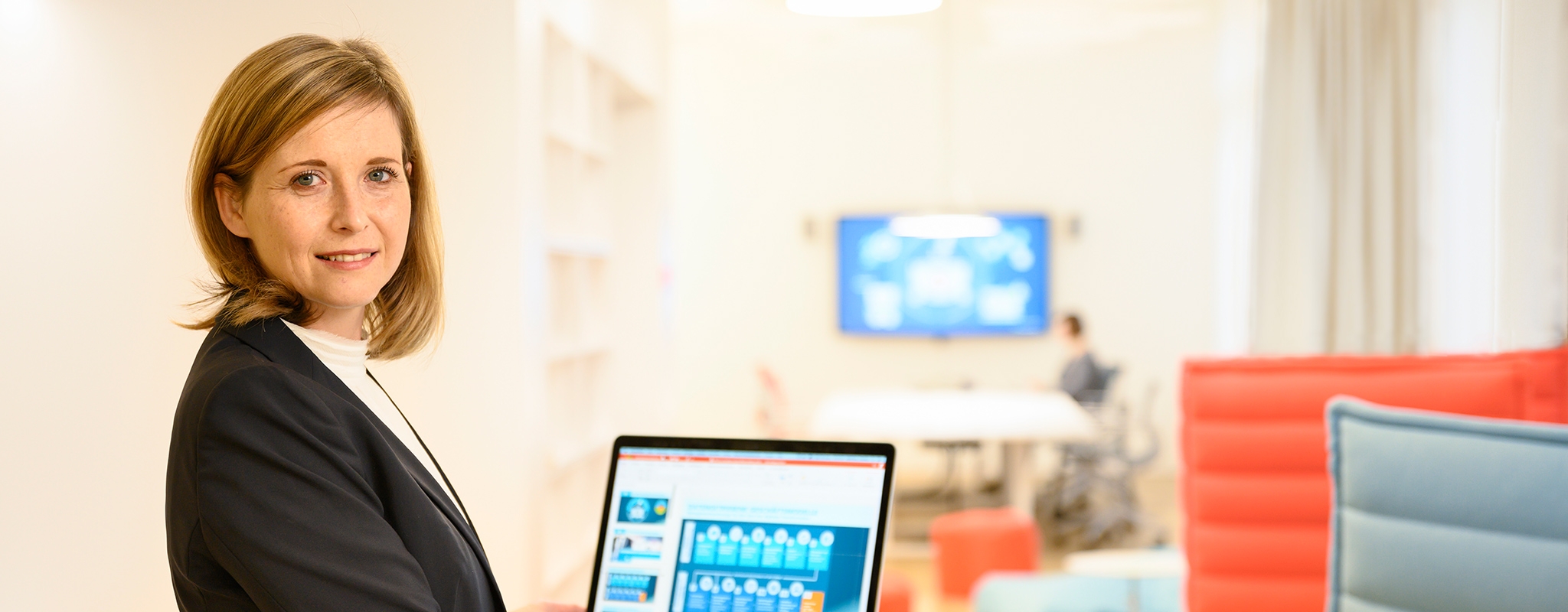Recently appointed head of department Dr. Nadja Hoßbach looks at digital transformation from three perspectives
Dull and monotonous? Not here! Dr. Nadja Hoßbach heads up a diverse team made up of experts from the social and economic sciences, from the natural sciences and mathematics, from engineering and psychology, plus a large number of students and research assistants. Hoßbach, who holds a doctorate in information systems, took over as head of the Innovation and Transformation department at the Fraunhofer Center for Applied Research on Supply Chain Services SCS, with its 40 employees, on September 1, 2020. Together, their mission is: “To help organizations master the digital transformation,” Hoßbach says.
